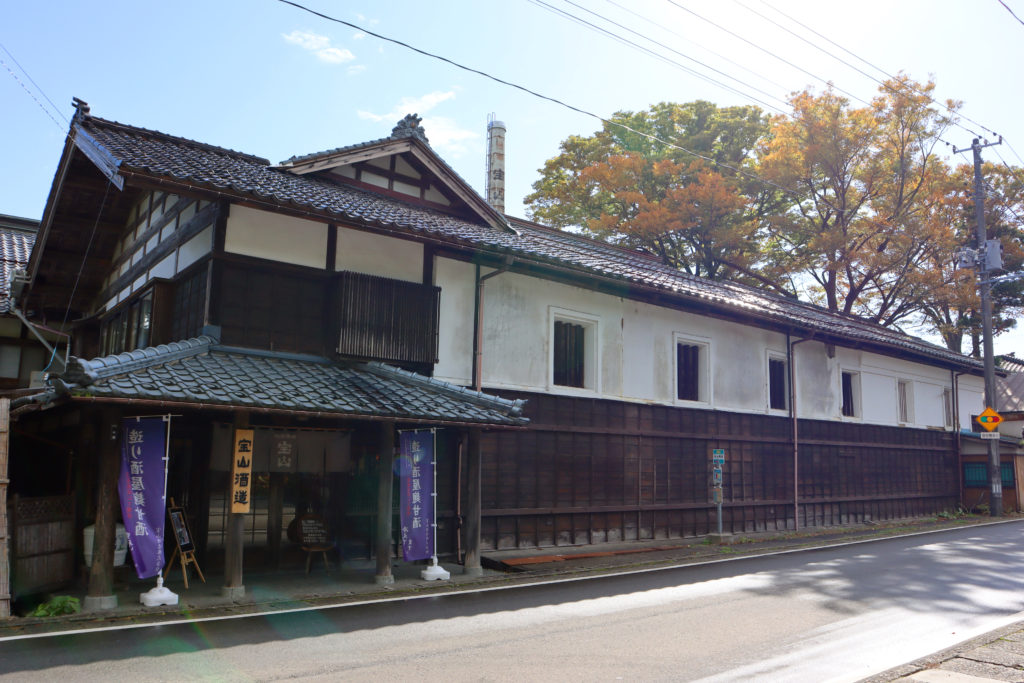
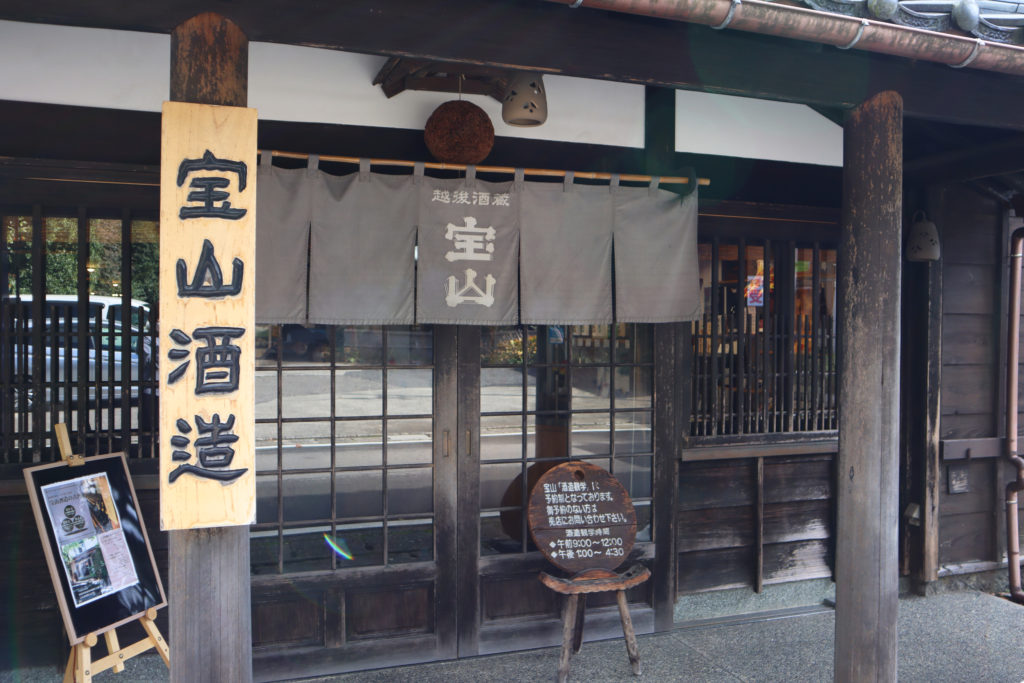
Niigata has long been blessed with water and rice, paving the way for much delicious sake. Niigata ranks number one in the country with nearly 90 sake breweries, a true kingdom of sake. If you visit Niigata, why not visit one? This time, I visited Takarayama Brewery, one of the 15 breweries located in Niigata City.
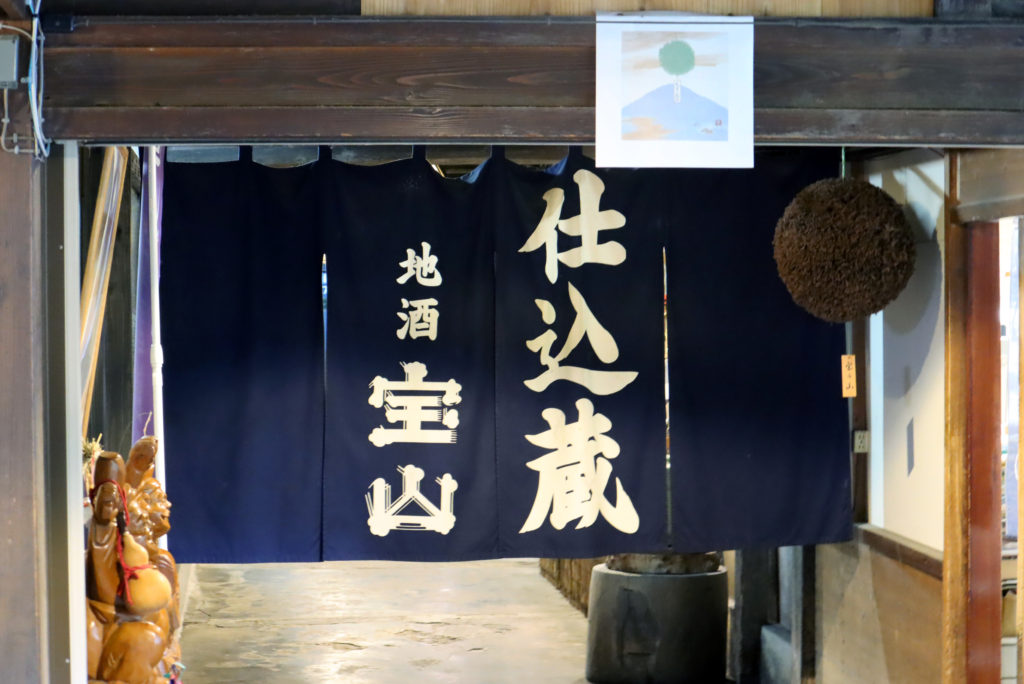
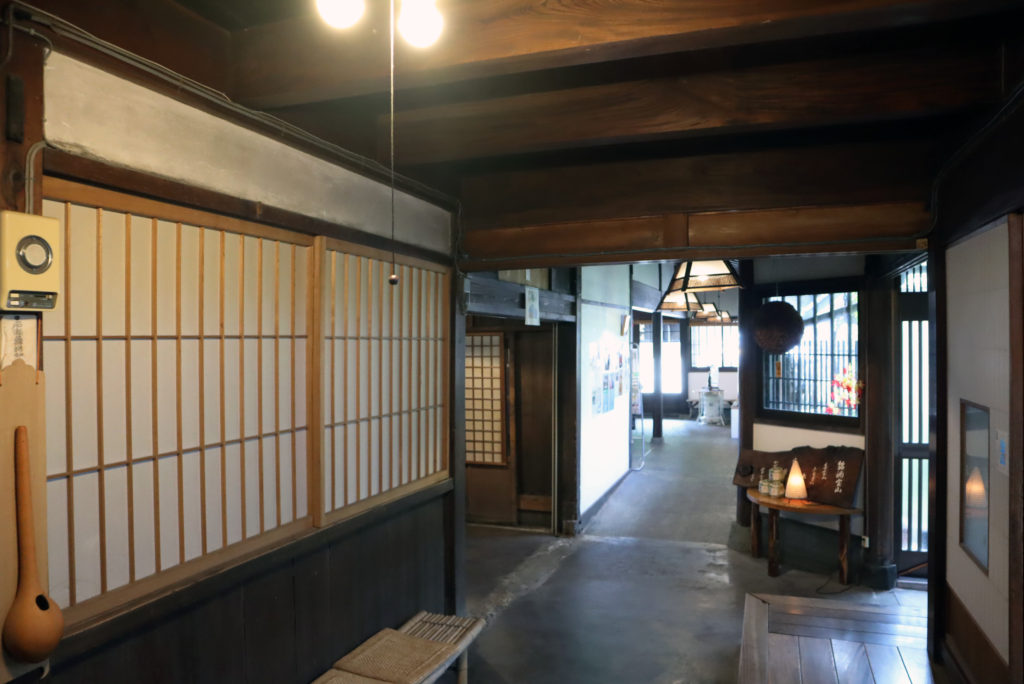
This time-honored brewery, literally named “Treasure Mountain Sake Brewery,” was founded in 1885. In aiming to “put all their heart into delivering handmade sake,” this long-established brewery continues to brew in small batches. We saw that heart first hand in the warm welcome we received from the proprietress who is the face of the brewery. The building itself is traditional Japanese and I couldn’t stop myself from taking photos of its calm beauty from the moment I lifted the store curtain to enter.
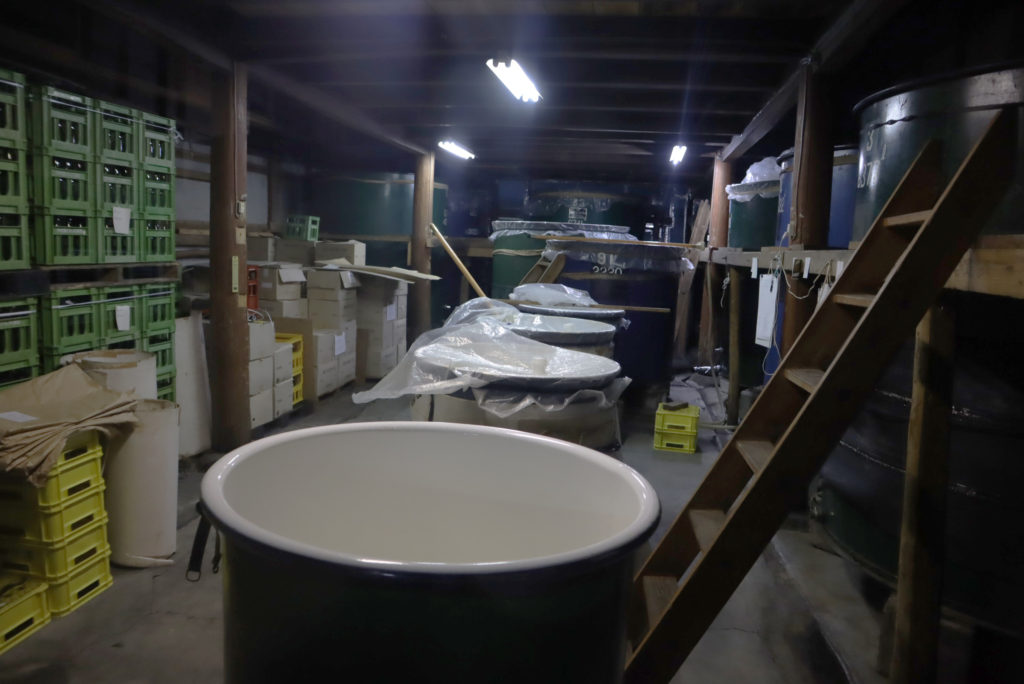
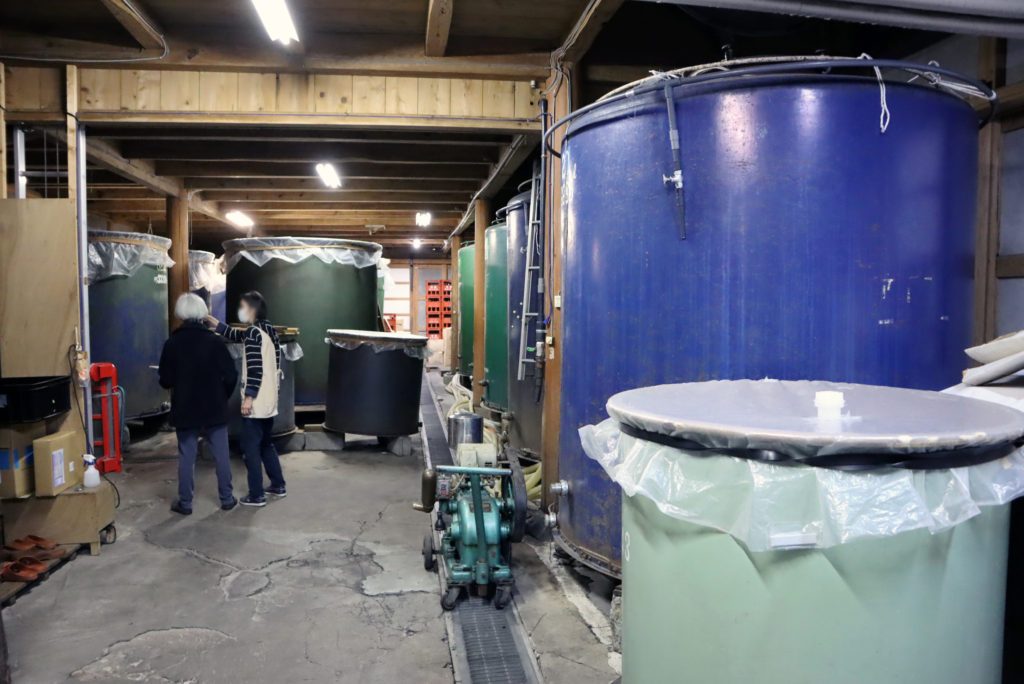
At Takarayama, the brewery tour with sake tasting is FREE! The day I went, we also participated in the tour. Since it was my first time visiting a sake brewery, it was exciting because it was like walking into a whole new world. The proprietress guided us inside the warehouse where giant tanks sit in a row and we were bathed in the wonderful smell of sake the moment we walked in! Since this is a realbrewery, not one made for tours, it was an invaluable experience to see the process up close.
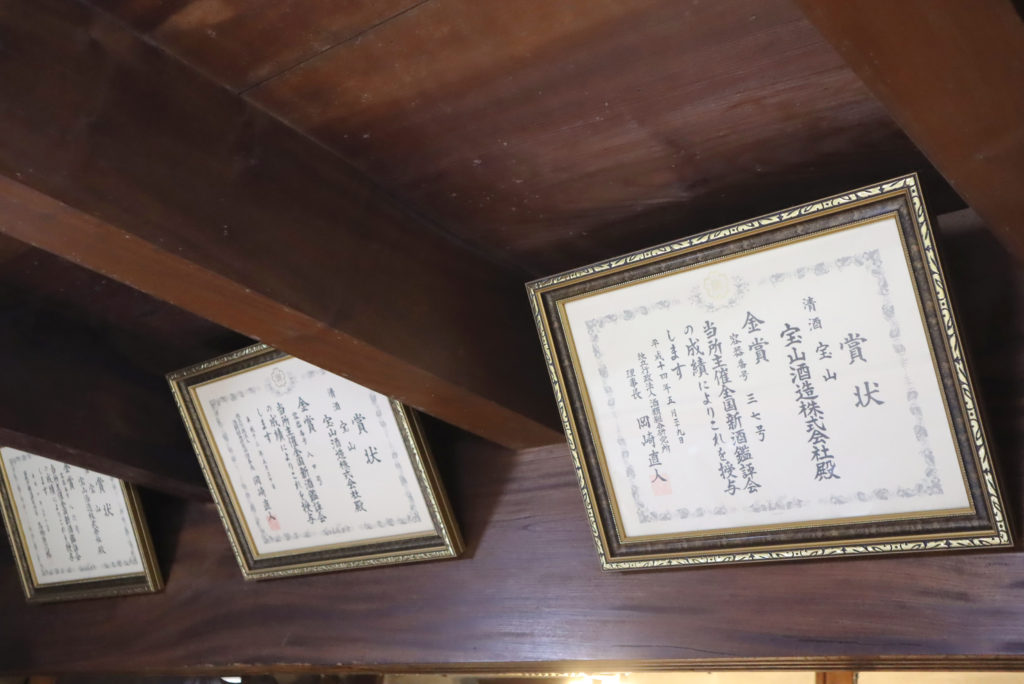
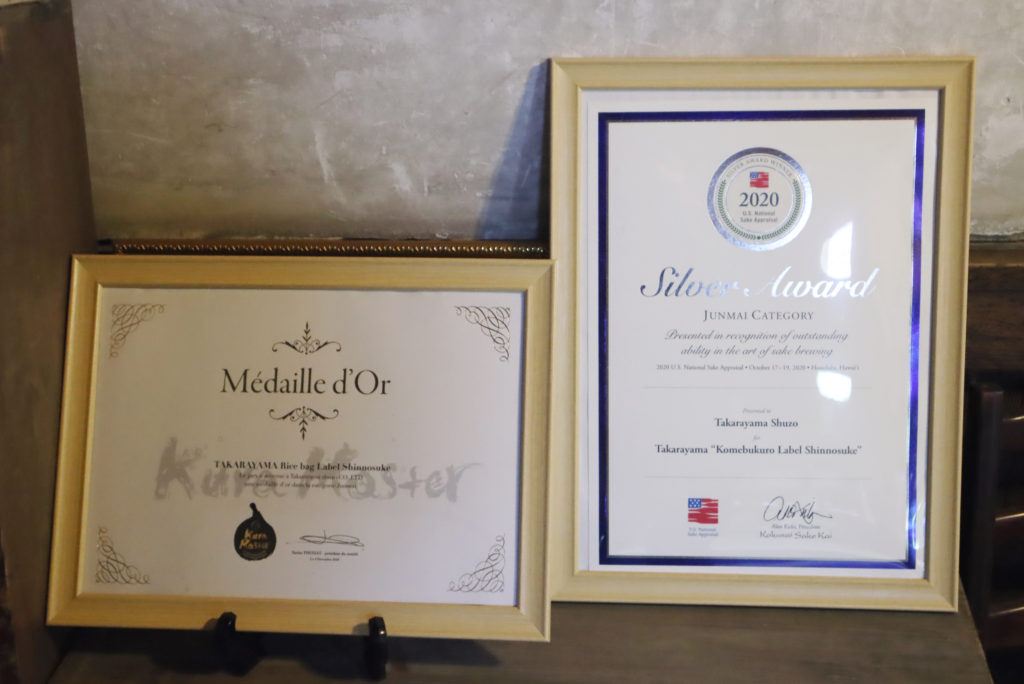
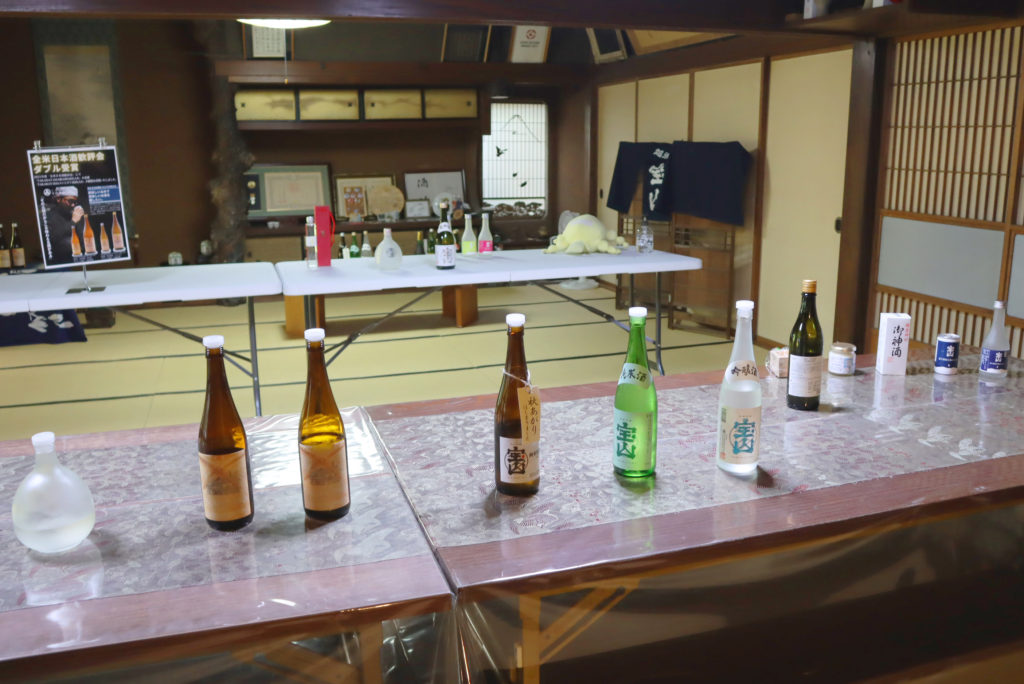
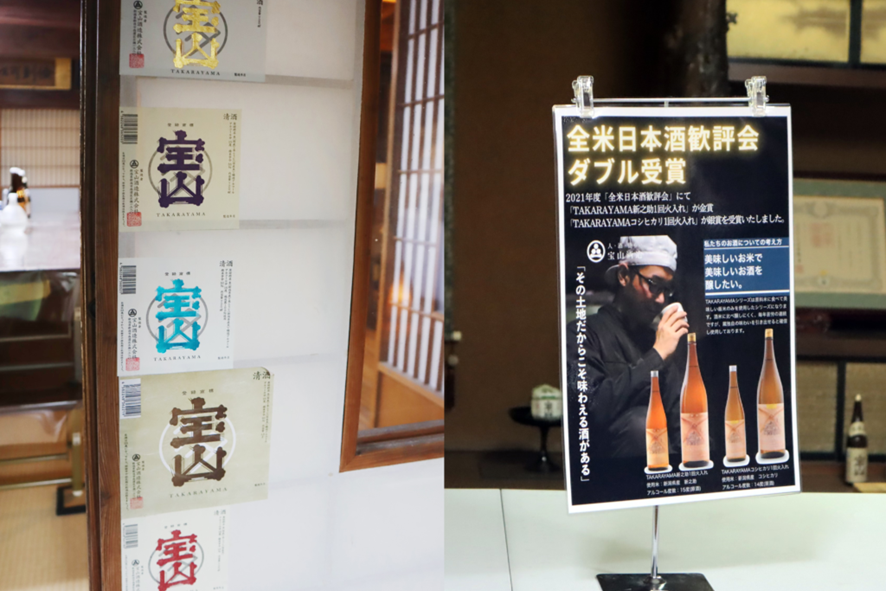
After we walked through the brewing areas, we arrived to the place where we could gain an even deeper understanding of Takarayama’s sake. What first caught my eye were the numerous awards that were all over. Seeing awards from not only Japan but from abroad as well really makes you want to hurry up and taste the sake. Before we could though, there was one more special treat to be had, a presentation by the proprietress! Rare insights into Takarayama’s history and in depth talk about each and every one of their sake labels sucked me in like I was listening to a folktale.
By the way, do you know the types of sake? I’m sure you’ve heard a variety of names, but Japanese sake (“tokutei meisho shu” or specially designated sake) is categorized by 1) if alcohol is an added ingredient, and 2) the polishing ratio of the rice used. The polishing ratio is the percentage of the rice grain left after being polished. It is said that the more it’s polished, the more refined and clear the taste will be.
First, “Junmai” is the name for sake made with only rice, rice koji, and water. From there, depending on the polishing ratio, you get the labels “Junmai” (no regulated ratio), “Junmai Ginjo” (polishing ratio of 60% or less), and “Junmai Daiginjo” (polishing ratio of 50% or less).
On the other hand, if alcohol is added, the polishing ratio still creates the categories of “Honjozo” (polishing ratio of 70% or less), “Ginjo” (polishing ratio of 60% or less), and “Daiginjo” (polishing ratio of 50% or less).
In this way, the ingredients and polishing ratio create different tasting sake so keep these in mind the next time you choose which sake to get!
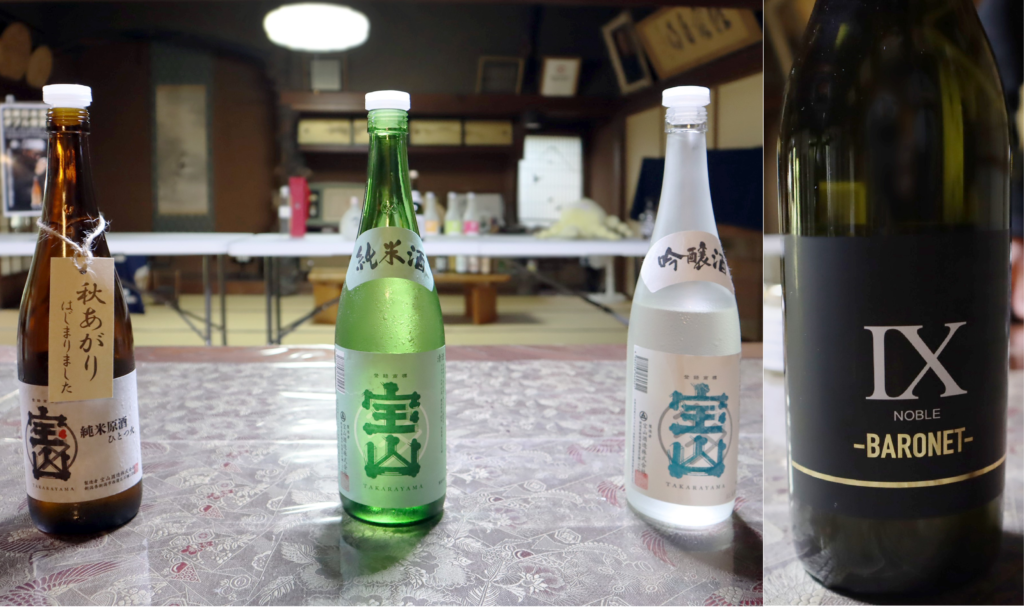
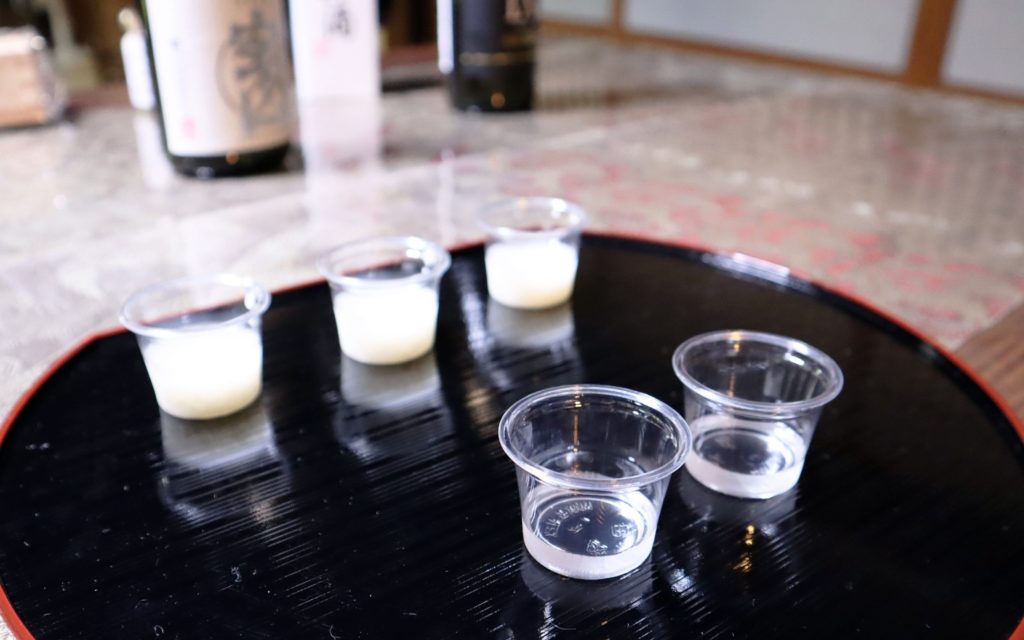
At last, it was time to taste the sake Takarayama is proud of! They offered an array of sake and amazake for us to try. It’s more fun to drink when comparing the different flavors. I sipped each sake, one-by-one, curiously trying to figure out which best suited my palate.
For what it’s worth, I especially liked “Baronet” which is a part of their new “Noble Series!” It was a bit different from a typical sake, and soft and easy-to-drink like a sweet white wine. The “Noble Series” is a line of special sakes that they are creating over 10 years using names from nobility starting with “Knight” in the first year and finishing with “Emperor” in the tenth. “Baronet” is from the second year and I look forward to tasting the rest as they come out each year!
So what do you think? Want to come and enjoy a sake experience that satisfies your five senses?
By Eunji Kim
Information
Hours: 9:00–18:00
Admission: Free
Address: 2953 Ishize, Nishikan Ward, Niigata City, 953-0141
Mapcode: 190 191 510*43
URL: https://takarayama-sake.co.jp/
